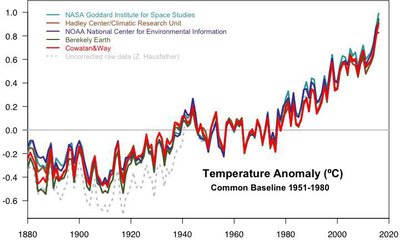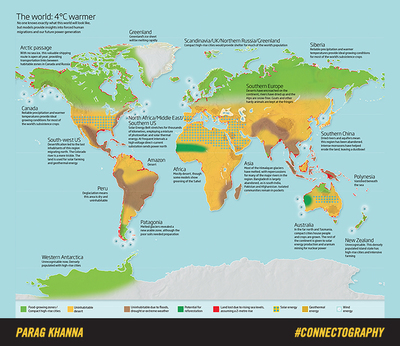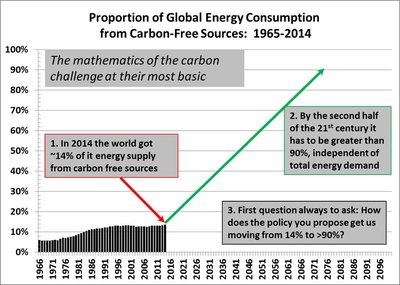Bye bye, sabbatical!
In the past months I’ve been on a sabbatical, with an intention to spend some time on open source, learning, and reflection. This sabbatical ends today. For many reasons it ended up being a different and more transformative journey then I expected and in this post I’d like to describe some important things I learned. Tomorrow, you’ll see where this led me.
Climate change
One of the topics I always wanted to explore but didn’t have the time was the climate change 1. I heard about it in the news since my childhood, but all I knew was that it has something to do with greenhouse gasses and rising ocean levels. I wanted to learn more. What exactly causes it? What is the current state? Are people in danger? What will happen if the we don’t do anything about it? And can we do something? What exactly? What is the cost of these measures? Wouldn’t it make more sense to just adapt? And there were many more questions like that.
So, one day I entered “climate change” into Google and started digging.
What I learned
After a week or so of intensive study, I learned enough to realize that climate change is much bigger and more dangerous problem than most people realize.
To the best of our knowledge, the whole thing is caused entirely by us, humans — specifically by releasing CO2 and other greenhouse gasses to atmosphere, mainly as a result of burning fossil fuels. This has already raised the average global temperature over 1 °C higher above pre-industrial times, and the trend continues — 2016 was the hottest year on record, surpassing 2015, which in turn surpassed 2014.

If we do nothing about this, the temperature increase will reach 4 °C or more at the end of the century. This will have a multitude consequences, including widespread droughts, ocean level rise (because of thawing icebergs) and extreme climate (because the climate system will contain more energy). These will have devastating effects in many areas and will cause mass migration (from areas that become too dry to live in or flooded). All this will almost certainly cause conflicts and massive loss of life and property.

What’s worse, climate is a non-linear, unstable system with many built-in positive feedbacks. This means that once the warming crosses a critical threshold, we will be powerless to stop it. We would just watch the temperatures slowly go up while more and more areas of our planet would become unhabitable. No one is sure where exactly this point of no return lies, which makes it even more urgent to deal with the problem sooner than later.
What now?
When I learned the above (and much more), it left me quite depressed. It was clear that climate change is a huge problem that can easily lead to the end of the life as we know it. So I went to see what can be done about it.
It turns out that the biggest part of the problem is burning fossil fuels to produce energy. To mitigate climate change, we have to be smarter about energy production, consumption, and distribution. Specifically, we need to convert the electricity production to non-carbon sources (wind, solar, nuclear) and be more serious about energy savings.
Obviously, this is a huge political and technical challenge.

Once you have a clean electric grid, you can attack another part of the problem: transportation. Currently it’s all based on oil, but at least for cars there is an obvious path forward: electrify them. Again, a huge challenge, but it’s not like it’s not being worked on.
Learning this, I began to think about whether I can maybe help somehow. And that will be the topic of my next post tomorrow.
-
Also known as “global warming”. I decided to use the term “climate change” because it is more encompassing and more widely used today, even though it is an euphemism. ↩︎

